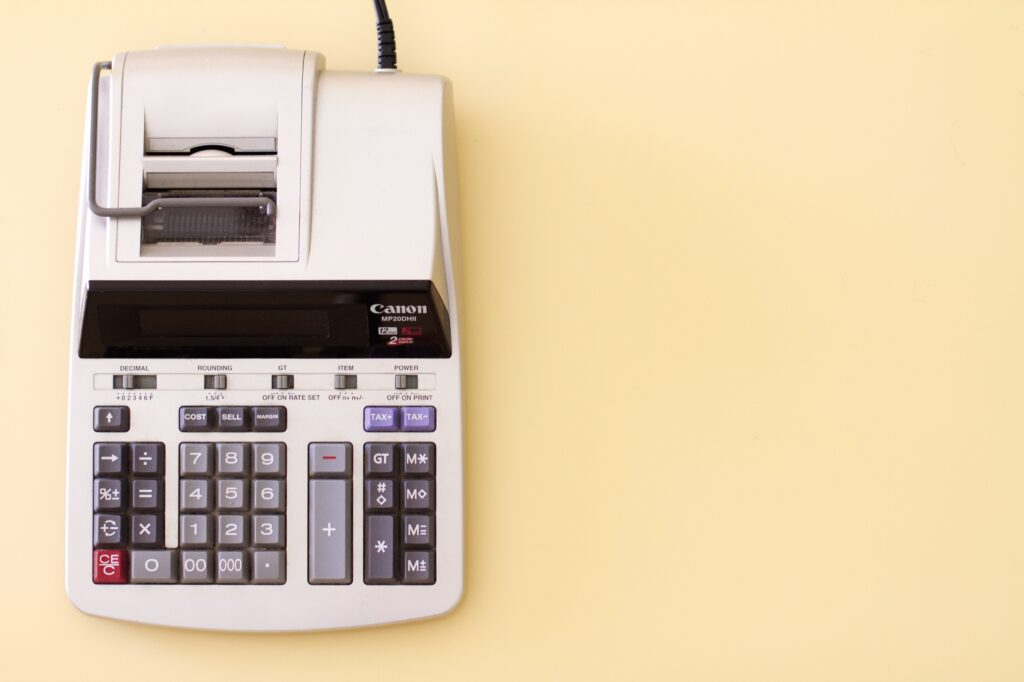Keeping a budget is not easy, but learning how to stick to a budget can be practiced.
The truth is a simple budget helps you reach your goals. It’s an incredibly valuable tool that anybody can master. It has a steep learning curve for some.
We want to give you budgeting tools, resources and strategies that’ll set you up for success. Here are 11 ways on how to help you stick to a budget plan so you can jump-start your savings, reach your goals, and thrive.
1. Sleep on big purchases
If it’s not something you need, take a week to think on it. Does this purchase come with a payment plan (e.g. a car loan) that will mess with your budget plans? Will this throw off your savings? How will this benefit your day-to-day life? Is the benefit worth the cost?
Weigh the benefits here to ensure it’s adding value to your life and not stress your allotted budget. If you’ve forgotten about it after the week, that’s a good indicator that you didn’t need it.
2. Never spend more than you have
Getting into debt can be a vicious cycle that is tough to get out of. With interest, you’ll end up spending more money that you would have if you had waited or saved up, which will also hurt you savings.
If you can’t afford something you want, put it off for the next week. If you want to go on vacation, plan for it. Save regularly so it doesn’t throw off your budget.
3. Stick to a lower credit card limit
Credit cards with high limits are easy to rack up and hard to pay down. Reduce the temptation! Keep to a lower credit limit and pay it off more frequently so you never get trapped.
A good rule of thumb is to stick to a limit that you can pay off at one time (eg. using an emergency fund). That way, you can cover your purchases with minimal or no interest while building your credit in a healthy way.
4. Budget to zero
Budgeting to zero means that when you make a budget, the difference between what you earn and what you spend should be zero.
Income – expenses = 0 BHD
Budgeting to zero doesn’t mean you spend everything you earn; it also doesn’t mean you must use the same categories for the rest of the month. On the contrary, it is a great way to start a saving program by putting your savings into your budget money. This also serves as a budget builder, ensuring your budget is flexible enough to change when life throws a curve ball at you.
5. Try a no-spend challenge
This is sometimes called a spending freeze, spending fast, or a challenge to spend nothing. Whatever you call it, the idea is the same: a commitment to not spend money on anything that’s not a necessity.
A no-spend challenge can last for a week, a month, or even a year. It might seem hard, but it’s a very effective way to shock your system, change how you spend money, and change how you think about money.
Start your no-spend challenge with a budget list, writing down what you need and how long you want to go without spending money. This can also be the best way to budget since you can ensure that you’ll only be spending on necessities. Challenge your best friends or family to see who can save the most to make it fun.
6. Stop paying fees
Do you need a subscription to both Apple Music and Spotify? What about Netflix, Amazon Prime, and Hulu? Probably not.
7. Plan your meals
Planning your meals and sticking to a grocery list are some of the easiest ways to save money. By making a list of what you need for the week, you won’t buy too much food that will go bad in your fridge and end up in the trash, a waste of food and money.
8. Do your grocery shopping online
If you’ve ever shopped on an empty stomach, you know that many non-necessities sneak into your cart.
Or, have you ever gone to the produce section and felt like you needed to change the way you eat, so you threw in a bunch of vegetables you couldn’t even spell, only to have 75% of them sit in your fridge and go bad?
Order your groceries online. That way, you may take your time deciding what to buy and will only spend money where it is truly necessary. You can save even more money if you purchase online at retailers that provide coupons and special discounts.
9. Pay yourself first
On payday, set up some automatic transfers or put some cash aside to account for your bills, but more importantly, for YOU.
Savings, no matter how small, can grow into something larger and help you afford a much-need trip or for the emergency fix of your car. Or, maybe it will you buy a house one day?
Either way, prioritizing your own financial needs over those of others sends a strong message that you value and respect yourself enough to give yourself access to your own money.
10. Compare brands
Name brands cost more than generic brands, an extra 8-9% per grocery trip. Per item, that might not seem like that much. But the cost can build up after only one trip to the store. Consider how much you’d spend on a name brand over the course of a year if you went shopping twice a month.
What we are focused on here at Daleel is giving you the right tools and information to help you find the best financial product for you.
11. Connect your spending to your work
You work hard for your money. But rarely, when spending money, do people connect it to the labor that went into generating it. So you buy that pair of shoes that’s 100 BHD without thinking too much about it.
But if you think about the labor those shoes will cost you; you might see their value in a new light.
Here’s how to do it: Calculate how much you get paid per hour. If your salary is annual, divide it by 52 weeks, then by the number of hours you work in a week. Then when you’re buying something, figure out how many hours of labor it would cost you.
So the shoes aren’t just 100 BHD. They’re 3 hours 38 minutes worth of work.
Thinking about your entire budget in this way can be a simple way to reframe how you psychologically view money.
Bonus Tip: Treat yourself when you reach your goals
Budgeting isn’t just about discipline. It’s a tool to help you reach your goals, to do what you want to do, and live the life you want to live.
So keep it fun. Gamify the process and reward yourself when you stick to your budget. Instead of dwelling on what you can’t afford to do now since you are saving money, focus on what you’ll be able to do later! In no time, budgeting will go from being a burden to something you can look forward to. on




